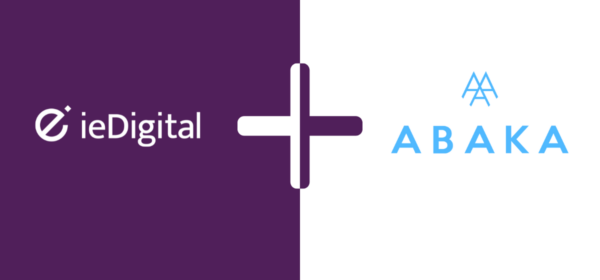The world’s first smartwatch bank, which helps customers stay closer to their finances, launches today to mark the 30th anniversary of the online bank. The “Interact™ Smartwatch App” has been developed for the Pebble smartwatch by British financial services software firm, Intelligent Environments.
The app, which can be installed on any Pebble device, enables users to view their live bank balance, recent transactions and will even vibrate when near the user’s overdraft limit. The easy to use app allows bank customers to discretely get an instant overview of their finances, without needing to visit an ATM, go into a bank or locate and log into a smartphone banking app.
The Interact Smartwatch App has been inspired by Britain’s first online bank service, Homelink, which was launched in November 1983. Homelink, set up by the Bank of Scotland for customers of the Nottingham Building Society, was based on the UK’s Prestel Viewlink system and used a dedicated computer terminal connected to the telephone and television. It allowed customers to view statements, bank transfers and bill payments online.
“The system was massively ahead of its time,” said John Sinclair, one of the first Homelink users and one of the founders of The National Museum of Computing. “I organised a mortgage through the system and it even pioneered an email-style messaging system with technology called “viewlets”. These were essentially short messages which pre-dated the widespread use of emails by 15 years. It’s a shame that the system died out by 1985 probably because of the cost of using online services at that time.”
Clayton Locke, Chief Technology Officer at Intelligent Environments, said: “We develop our banking software and mortgage software by first finding out what customers really want in a digital bank. Our research¹ shows that people like to know their account balance in real time. Plus customers are increasingly curious about how wearable devices, such as smartwatches, can be used to manage everyday tasks such as banking.
“This Interact smartwatch app brings consumers closer to their money, making it more convenient to keep track of finances. All it takes is a glance of the wrist to check your balance while out and about. The Interact smartwatch app marks our first step towards developing digital banking systems for other wearable technologies, such as Google Glass.”
Intelligent Environments is now in discussions with a range of banks which are looking to roll this technology out to their customers.
Over 35 million people in the UK have at least one digital bank account, with eight in 10 (81 per cent) using digital banking to get instant visibility of their finances, according to Intelligent Environments’ research¹.
About the research
¹ Research was conducted among 2,000 British consumers in October 2013 by Vision Critical














